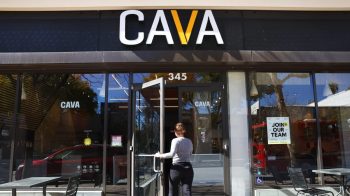At a panel held by Liquidnet a few weeks ago, three financial markets professionals, an economist and an academic all discussed one question: has the Facebook IPO made the stock market look like it’s rigged?
The unanimous answer: Yes.
Both savvy investors and cynics might say that the market was rigged before – that regular investors didn’t have a chance of making a profit with the odds designed to work against them. That might have been true, but the Facebook IPO made it obvious.
News stories since the Facebook IPO have indicated that the company, its executives and investment bankers planned to profit by selling excessive shares, which they then forced down the gullets of unsuspecting regular mom-and-pop investors.
Sure, these investors might have greedily clamored for the hotly hyped shares of Facebook in something approaching a mania – but they received more than they bargained for, literally. Facebook and its investment bankers increased the number of shares the company was selling, at the last minute, and pushed the extra shares on investors who were suddenly swimming in a glut.
This whole phenomenon broke the cardinal rule of IPOs: always leave investors wanting more. Stuffing investor accounts with shares like geese being fattened for foie gras is just…bad form.
But more importantly, the issue highlighted how helpless investors are to intelligently tackle the market. You can make a rational, informed decision to buy, say 100 Facebook shares; but the company can still force 200 on you, and all you can do is sell them at a loss. Sorry. The house always wins.
It turns out that it’s not just mom-and-pop who feel that the Facebook IPO made it clear the market is hostile to anyone but millionaires.
A new study says that the Facebook IPO was a turning point for even professional, veteran investors. Stock-market research firm The Tabb Group polled 175 market veterans – investment management companies, hedge funds, brokers, exchanges, alternative trading systems, liquidity providers – about their belief in the market after the Facebook IPO.
What did the Tabb Group find? That of these investors who seem to have the advantage of experience, skepticism and millions of dollars to invest, “31% say their confidence level in the US equity markets is weak or very weak.”
Now, that’s not damning – after all, that means that 69% have something more than “weak” confidence in the market now – but it’s very telling for nearly a third of big investors to say the Facebook IPO hit their level of confidence in the market. (Tabb Group noted that institutional investors – the ones who traditionally hold power in the markets – had slightly higher confidence.)
And nearly half – 46% – of the participants said that the Facebook debacle will hurt the IPO market for six months. Even more surprising, 39% of them said the IPO market could slow down for two years because of Facebook’s troubles. And 63% of the participants in the study said that, post-Facebook, the way IPO shares are distributed is an area “ripe for change.’
Now, that’s a lot of pressure to put on one IPO, it’s true. Facebook isn’t the only thing that may be killing investor confidence and causing the global slowdown in the IPO market. It’s absolutely certain that the IPO market’s troubles also have roots in the deepening European crisis and fears of a global recession.
But the Facebook disaster – because of its timing and its size – certainly contributed to that fear.
Tabb Group’s conclusion: “the investor confidence impact of the Facebook IPO is almost as great as the Flash Crash.”
(If you don’t remember the Flash Crash, it was the mysterious, sudden and brief crash in the markets in May 2010. It created a panic. We still don’t know why it happened, and that left a lasting scar on anyone with money in the market.)
An IPO that was supposed to be the herald of a social media revolution, and which instead crystallized a fear among all levels of investors: no wonder lawmakers are pushing for an inquiry.
Wall Street, however, usually changes when it wants to – when the impetus to change comes from within, when dodgy practices cease to be profitable. The voices of professional investors, coming out against dodgy IPO practices, are worth eight years of useless Congressional flailing and outraged speeches on the floor of the House or Senate. For Wall Street to change, it has to want to change. And finally, after long years of unquestioned greed, that point may be drawing near.
There’s a lot happening in the world. Through it all, Marketplace is here for you.
You rely on Marketplace to break down the world’s events and tell you how it affects you in a fact-based, approachable way. We rely on your financial support to keep making that possible.
Your donation today powers the independent journalism that you rely on. For just $5/month, you can help sustain Marketplace so we can keep reporting on the things that matter to you.


















